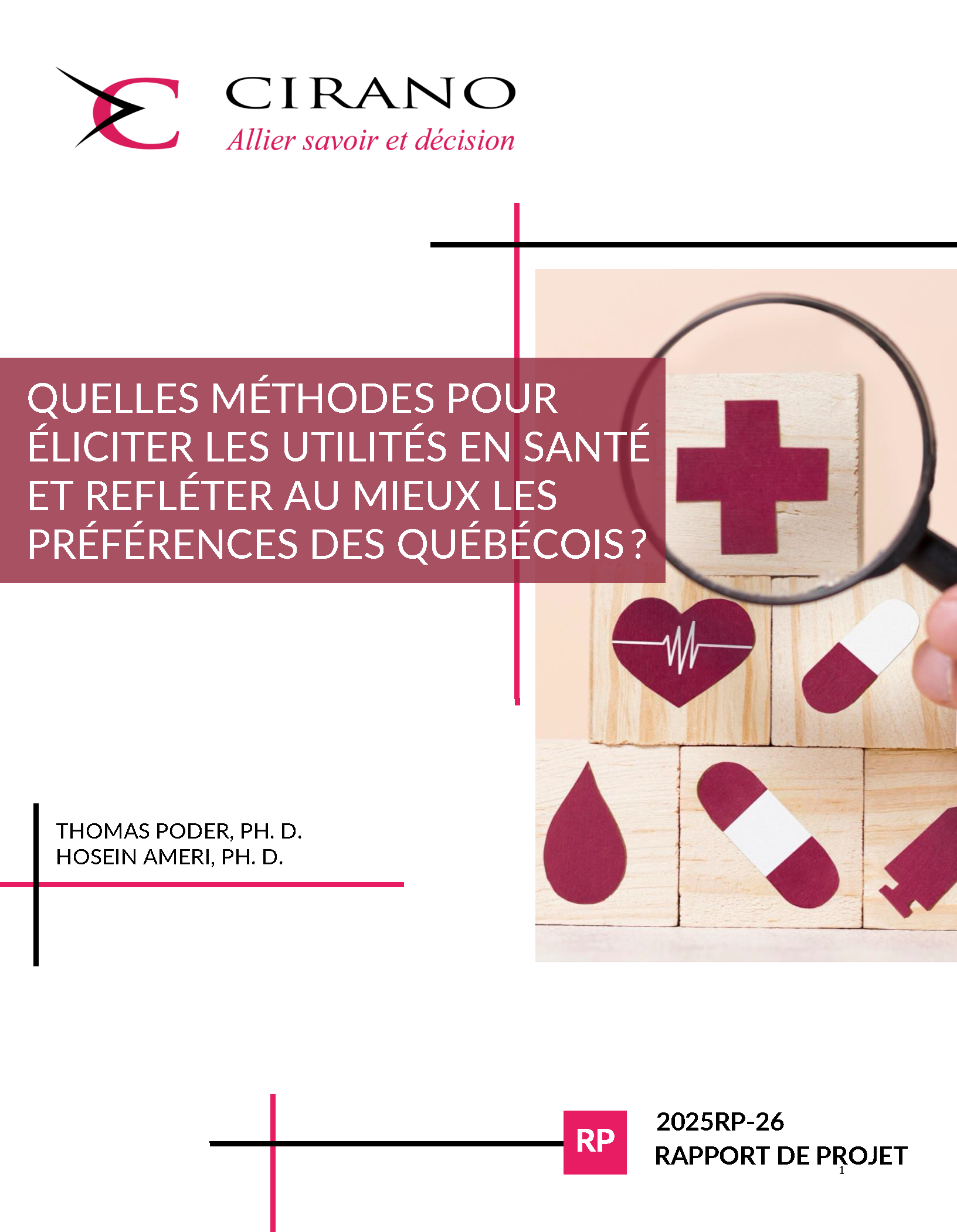Quelles méthodes pour éliciter les utilités en santé et refléter au mieux les préférences des Québécois ?
In this report, we empirically compare seven elicitation techniques for evaluating the utilities associated with health states described by the Short-Form 6-Dimension version 2 (SF-6Dv2), where the standard gamble (SG) is considered the reference approach. This allows us to estimate a SF-6Dv2 value set of health utilities for use in Quebec and to introduce a new approach based on multiple bounded discrete choice (MBDC). Various econometric estimation techniques were used, and all analyses were performed on data collected from French-speaking individuals aged 18 and over residing in Quebec, Canada, in 2016 and 2018.
The discrete choice experiment (DCE) approach combined with best-worst scaling (DCEBWS) appears to be a coherent and comparable alternative to the SG. Our analyses also show that the MBDC approach is feasible and allows for the generation of utility data representative of respondents' preferences. The reference SF-6Dv2 value set selected for Quebec is derived from DCEBWS and ranges from -0.683 for the worst health condition (555655) to 1 for perfect health (111111). The pain dimension shows the largest decreases in coefficients in terms of magnitude, indicating its significant influence in establishing the utility values for health conditions in Quebec.




